New Year's Resolutions Are a Pretty Great Tradition Actually
Let's stop dwelling on the "low" success rate.
You will find many people willing to preach to you about the hopelessness of New Year’s Resolutions. Some of the most “serious” articles on this subject essentially boil down to a discouraging title and a chart that looks like this.
Even the articles written to *help* people make and keep resolutions dwell far too much on the negative. By the time I get past the intro, I’m feeling demotivated.
The actual advice isn’t that much better—the presentation is rigid, jargon-filled, and again overly negative. These screenshots are from one of the better popular articles, the advice has merit, but how many humans find this presentation appealing?
The point here is not to dunk on any particular article, as in most cases the facts are accurate and the advice worth learning from. But if I were writing these pieces the overall tone would be much more encouraging.
Some points I might include in such a piece…
1:
Less than 50% of Americans make resolutions at all. No matter what the true failure rate is, it can't be worse than zero.
2:
There’s something beautiful, inspiring, and even American about a lot of people making self-improvement goals around the same time each year. According to a recent paper, less than 20% of Swedes make New Year’s resolutions.
3:
Simple math suggests that more people doing New Year’s Resolutions in America and around the world could make a big difference, even at very low success rates.

4:
What is a good success probability anyway? New Year’s resolutions aren’t the only things that usually fail.
Norcross and Vangerelli (1989) tracked 200 New Year's resolvers over a two year period and found that 19% successfully maintained their goal for the entire time. There may be a lot of fast-failers, but some people really are in this for the long haul.
5:
Much of the failure we associate with New Year’s resolutions likely arises from how difficult it is to lose weight under ANY circumstances. Success rates for almost any other type of resolution are likely to be higher!
6:
Even the very best often fail.
7:
And you can learn a lot from failure.
8:
Some goals benefit from coordination. If you are trying to eat healthier foods and smaller portions, it is easier to do so when others around you have the same goal.1
For couples and families, having a socially salient reason to discuss hard to bring up topics that need addressing is another great benefit.
Often it is just encouraging to feel that one is not alone in the struggle to improve in a more general sense.
9:
Couldn’t you simply resolve to improve yourself “now”, regardless of when that is? You could. But motivation and encouragement are often scarce.
When I see famous people scoff at New Year’s Resolutions, I suspect they are countersignaling.
10:
In the Norcross study I mentioned earlier, more than half of successful resolvers experienced a clear slip-up somewhere along the way.
Remember that you will not truly have failed so long as you continue to try.
Coda
Over a lifetime of self-improvement, I’ve learned that it is sometimes necessary to temper my optimism. You can’t afford to follow through with every goal and it’s important to know when to quit.
But at the end of the day, optimism has proven to be a more reliable guide for me than pessimism. And in that spirit I hope these tips give you some encouragement for the year ahead.
Help us achieve our New Year’s resolution to make the Time Well Spent comment section a vibrant and active community! Feel free to add to, question, or disagree with what you saw above and we will make sure to respond :)
You can also check out my other writing at Infovores Newsletter. Over there I write reviews, conduct interviews, and generally try my best to navigate a world of infinite knowledge. You can also follow @ageofinfovores.
Note that both of these goals have benefits independent of how many pounds you do or do not lose!


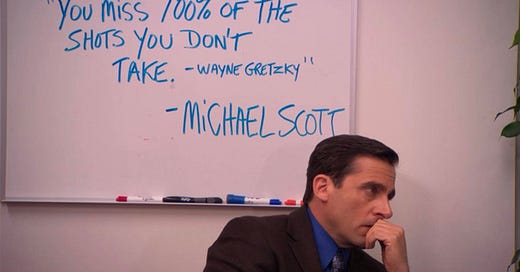




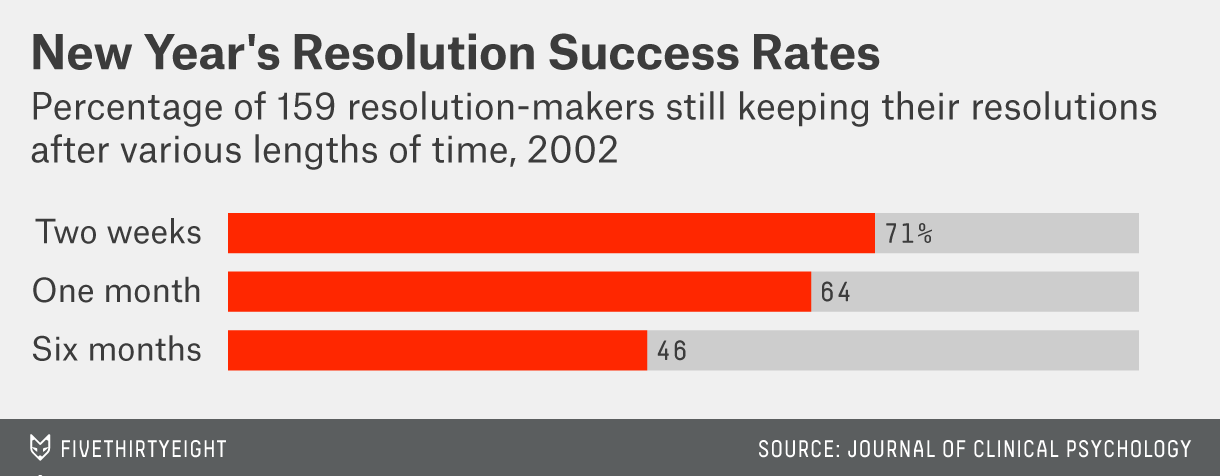
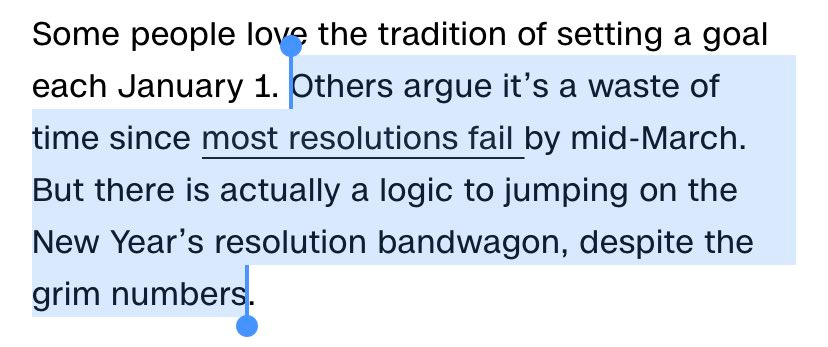

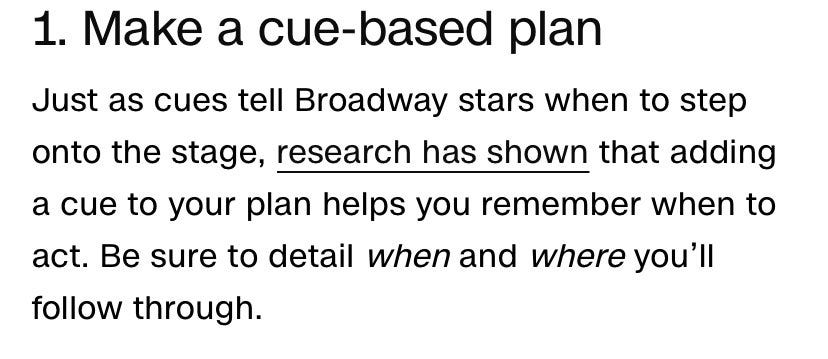
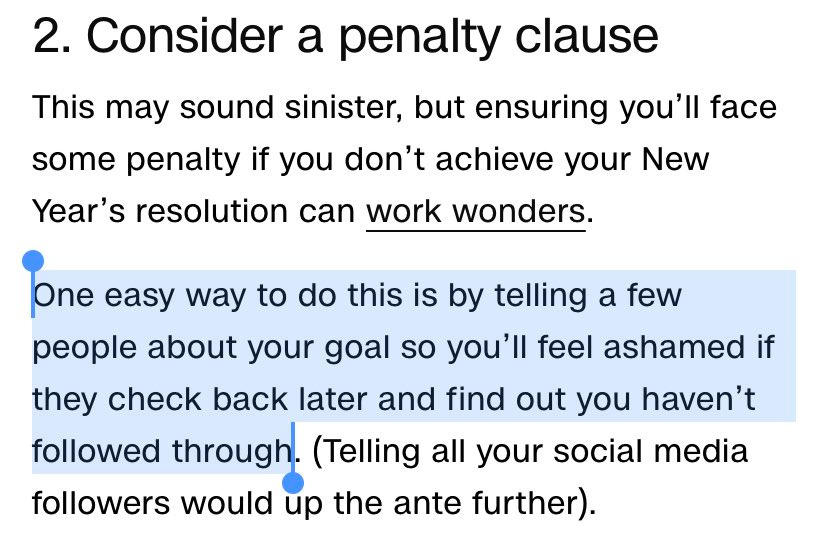

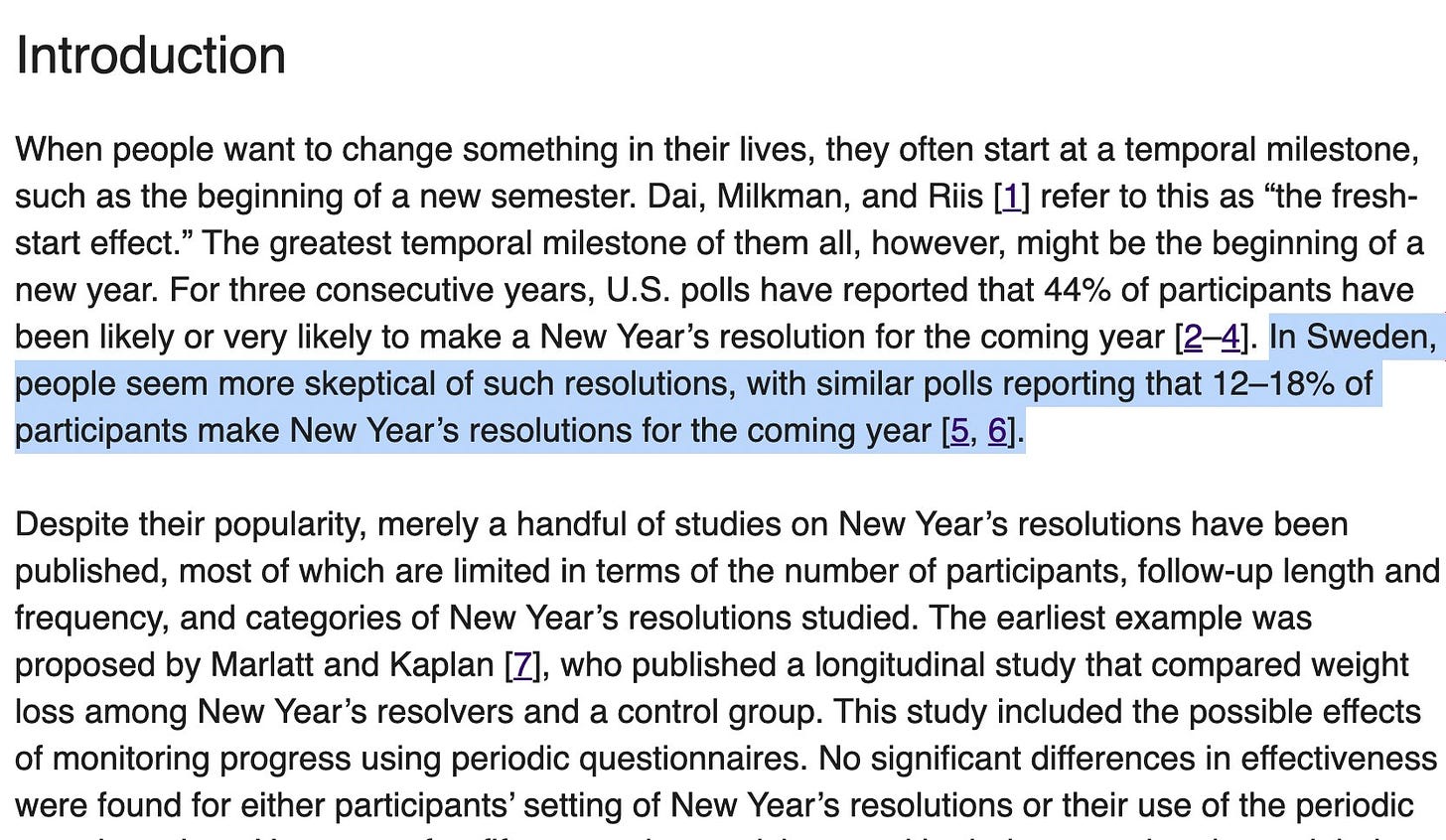

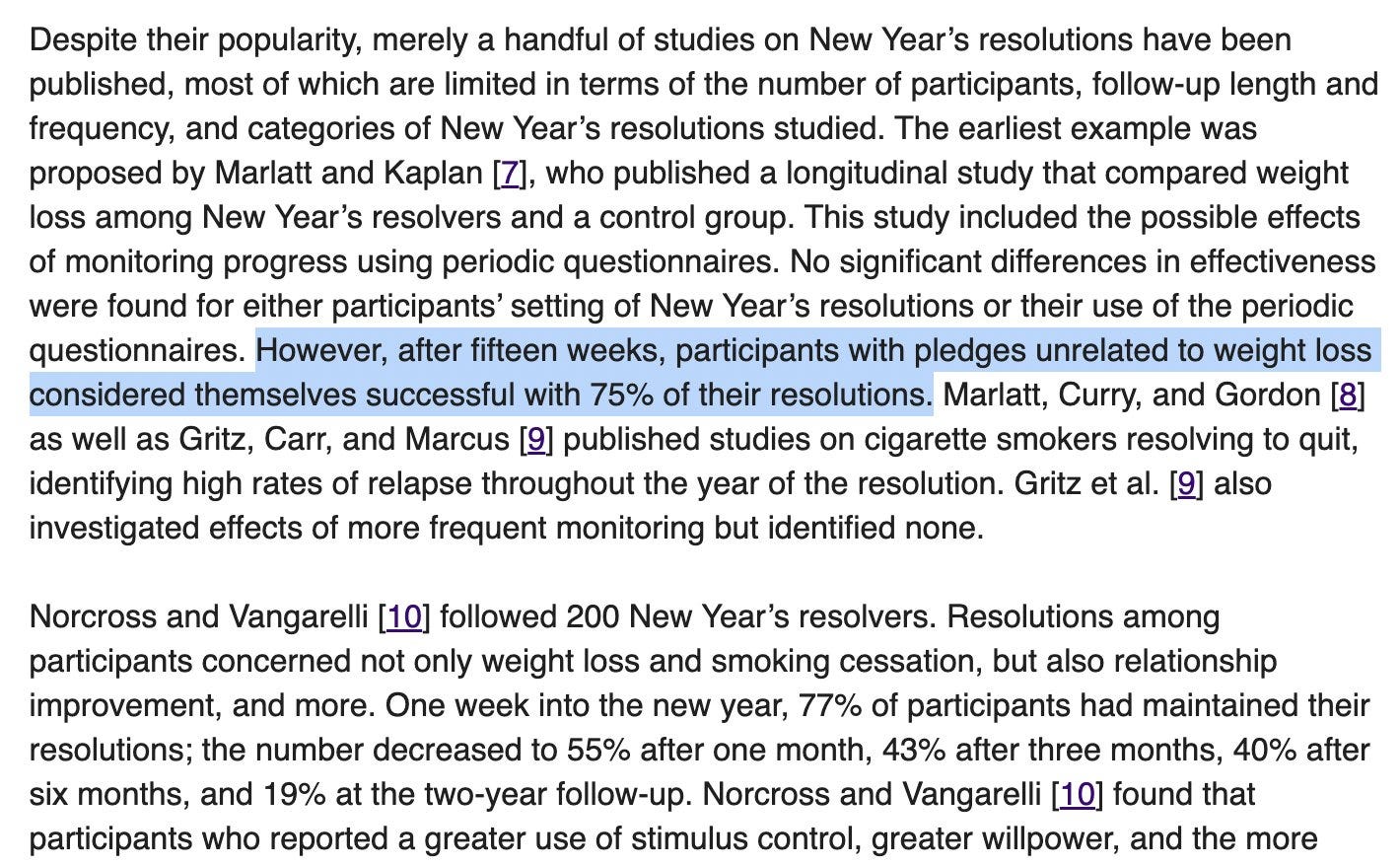
![I've missed more than 9000 shots in my career..." - Michael Jordan [714x476] : r/QuotesPorn I've missed more than 9000 shots in my career..." - Michael Jordan [714x476] : r/QuotesPorn](https://substackcdn.com/image/fetch/w_1456,c_limit,f_auto,q_auto:good,fl_progressive:steep/https%3A%2F%2Fbucketeer-e05bbc84-baa3-437e-9518-adb32be77984.s3.amazonaws.com%2Fpublic%2Fimages%2F850a33fd-6724-467c-be1b-c0fe2a6f8285_714x476.jpeg)
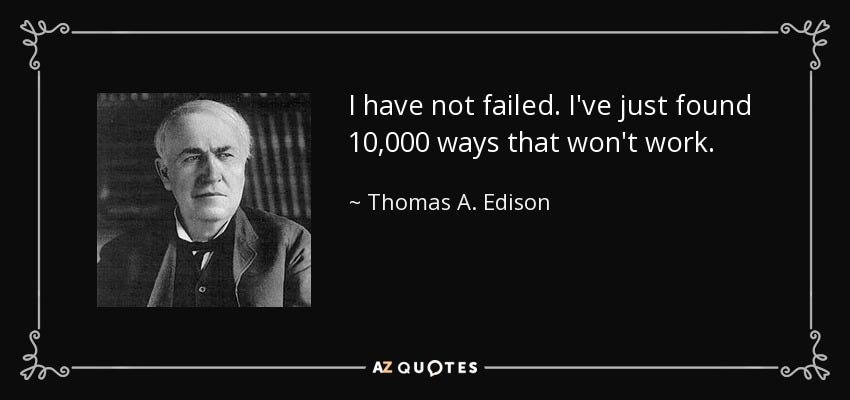











Thank you for the great content ! I hope you've made great goals that you will reach.
I started making goals after seeing my girlfriend take 1 hour in a bar to make up her next-year plan while I was reading. I was seriously impressed. Just list the goods and bads of the year and then set your goal from this. It seems easy, and also, why not just try, just in case it might somehow work?
Henderson's essay on counter-signaling is an essential read when it comes to understanding all of the "motivational"/"self-development" industry. It should be a prerequisite to read before setting "goals".
On a related note, I followed closely Jordan Peterson at the start of his "public career" and one of the things that absolutely stuck with me is his self-development program for students where he asked them to write the life they wanted to live, and also the life they absolutely didn't want to live. He said it got incredible results when he compared the pupils who did and the ones who did not do. And I believe him.
It takes some effort on the moment, but then on it's surprisingly easy to abide by your own goals. Surely you won't succeed 100% of the time, but I've found that simply bringing forth what you wanted for yourself was enough to somewhat orient your life towards these goals, unconsciously even. As my friend said "I just put some goals on paper and it turns out, most of the time, they end up happening, even if I don't pay attention to them." It's sort of a therapy by writing, and it's free.
Sarah, this is wonderful example as to why you are where you are. Your writting demonstrates that you have worked very hard and have become wise by acquiring tke knowledge to change your behavior and convert it into an action plan where you monitor your progress and change your strategies if they are not working. As I have told you before, I admire your persistence and dedication to change your behavior for the better. What it takes is to intentionally engage in the process of change. Keep it up. You are doing a lot of good by your writings but foremost by your example. Happy New Year! Francisco.